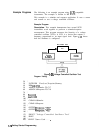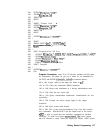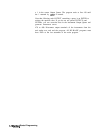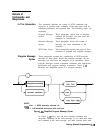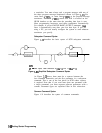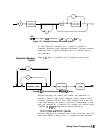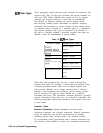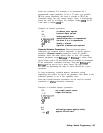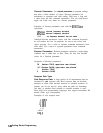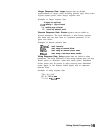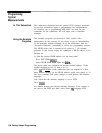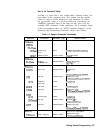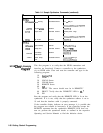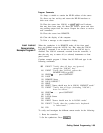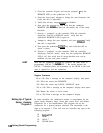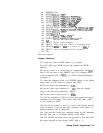
Discrete Parameters. Use discrete parameters to program settings
that have a finite number of values. Discrete parameters use
mnemonics to represent each valid setting. They have a long and
a short form, just like command mnemonics. You can used mixed
upper and lower case letters for discrete parameters.
Examples of discrete parameters used with the
ROSCillator
subsystem:
INTernal
internal frequency standard
EXTernal
external frequency standard
NONE
no frequency standard, free run mode
Although discrete parameters values look like command keywords,
do not confuse the two. In particular, be sure to use colons and
spaces properly. Use a colon to separate command mnemonics from
each other. Use a space to separate parameters from command
mnemonics.
Boolean Parameters. Boolean parameters represent a single binary
condition that is either true or false. There are only four possible
values for a Boolean parameter.
Examples of Boolean parameters:
ON
Boolean TRUE, upper/lower case allowed
OFF Boolean FALSE, upper/lower case allowed
1
Boolean TRUE
0
Boolean FALSE
Response Data Types
Real Response Data. A large portion of all measurement data are
formatted as real response data. Real response data are decimal
numbers in either fixed decimal notation or scientific notation. In
general, you do not need to worry about the rules for formatting
real data, or whether fixed decimal or scientific notation is used.
Most high level programming languages that support instrument I/O
handle either type transparently.
Examples of real response data:
1.23E+O
-1.OE+2
+l.OE+2
0.5E+O
1.23
-100.0
+100.0
0.5
l-84
Getting Started Programming



